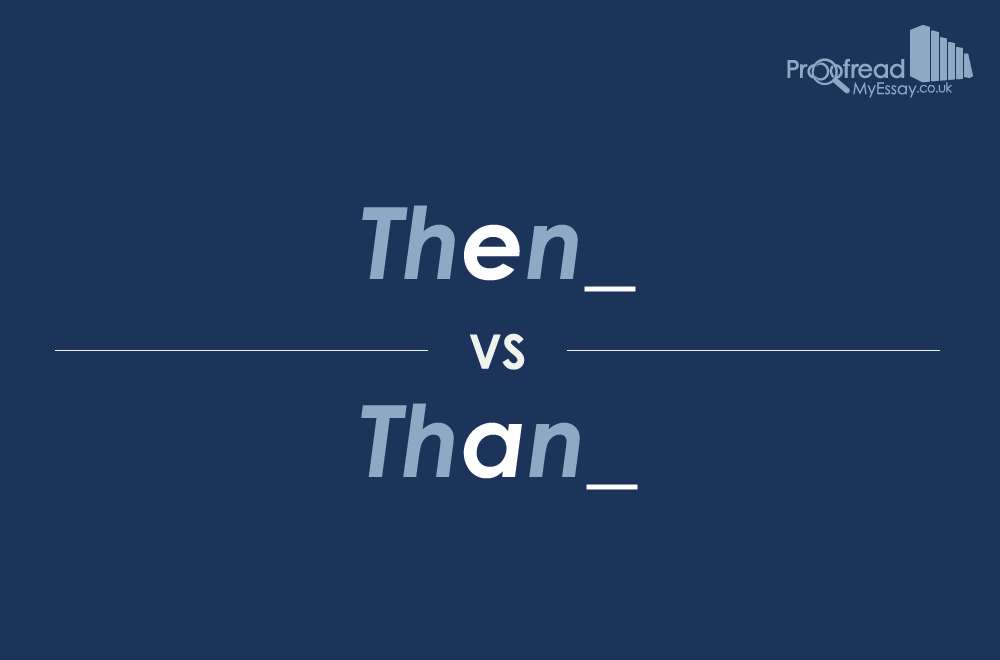If English isn’t your first language, it’s easy to get similar words confused. ‘Then’ and ‘than’, for example, sound alike and differ little in spelling, making occasional mix ups inevitable.
Yet these words have distinct meanings, so it’s important to know which term to use in any given situation. To help make sure your academic writing is always top notch, here’s a quick guide on how to use these terms.
Then (Time and Consequences)
The word ‘then’ has a few uses, but usually it’s an adverb related to time or consequences. For example, we can use ‘then’ to mean ‘at a certain time’ or ‘subsequently’:
Things will be different when we have hover-boards: nobody will be late then.
First I will brush my teeth and then I will conquer the world!
In both examples here, ‘then’ indicates a time (i.e. when ‘nobody will be late’ and when ‘I will conquer the world’). In addition, ‘then’ can indicate that something follows from something else (i.e. ‘if x, then y’):
If you’re tired already, then go to bed.
As well as being an adverb, ‘then’ is sometimes an adjective, modifying a noun to indicate that something was the case at some point, such as when referring to someone who no longer occupies the role attributed to them:
Find this useful?
Subscribe to our newsletter and get writing tips from our editors straight to your inbox.
Colonel Thomson, the then head of intelligence, denied knowledge of the spying.
In this case, the phrase ‘then head of intelligence’ implies that Colonel Thompson was in that role at the time of the ‘spying’ mentioned later.
Than (Comparisons)
The term ‘than’ is easy to understand, as its only use is as a conjunction when making a comparison or expressing a preference:
C3P0 is taller than R2D2.
I’d rather be R2D2 than C3P0.
Then or Than?
It’s easy to remember which of these words to use in any situation as long as you keep in mind that ‘than’ is used for comparisons:
- Are you comparing or contrasting two or more things? The word you need is ‘than’.
- Are you describing something that involves specifying a time or sequence of events? If so, then use ‘then’.



